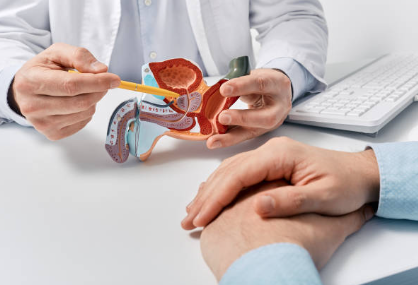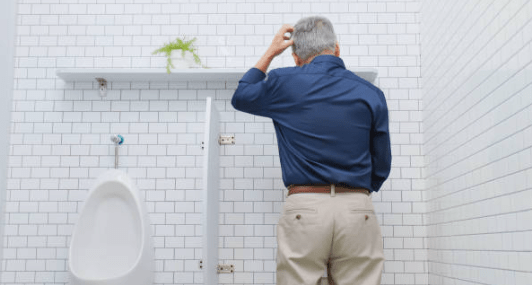10 Possible Causes of Burning and Stinging Pain While Peeing

10 Possible Causes of Burning and Stinging Pain While Peeing
Burning, Stinging, Pain While Peeing? Your Body Is Sending a Warning!
Picture this: You head to the bathroom, and instead of the usual relief, you’re met with a burning, stinging sensation that makes you wince. Painful urination is more than just uncomfortable – it’s a clear sign that something’s not right with your body. Let’s figure out what’s going on and how to get back to peeing in peace.
What Does Painful Urination Feel Like?
Painful urination, or dysuria, isn’t just one feeling. The discomfort can vary, and its characteristics often give clues about the underlying cause. Here are common descriptions and what they might indicate:
- Burning During Urination: This is the most common sensation and often points to an infection somewhere in the urinary tract, like a urinary tract infection (UTI) or an STI.
- Sharp Pain When Urinating: A sharp or stabbing pain suggests possible irritation or inflammation in your urethra or bladder. This could be caused by infections, but also by kidney stones, or sensitivity to certain products (soaps, bubble bath, etc.).
- Pain in Navel While Urinating: While your belly button itself might not hurt, pain felt in that general area during urination could be related to a bladder infection or another bladder issue.
- Right Side Pain When Urinating: Pain on your right side, especially towards your back (flank pain), could signal a kidney infection or kidney stones. This pain may be intense.
- Pain When Finishing Urinating: If the pain occurs at the end of urination, it could indicate a bladder that isn’t emptying properly or an issue with the prostate in men.
Important Things to Note:
- Additional Symptoms: Consider if you have fever, unusual discharge, blood in urine, urgency or frequency of urination. These provide important clues for diagnosis.
- Don’t Ignore It: Painful urination usually isn’t something that goes away on its own. It’s essential to see a doctor to determine the cause and get proper treatment.
Is Painful Urination Called Something Specific?
- The medical term for painful urination is dysuria. Don’t worry; it just means something’s amiss.
“Ugh, Another UTI!” Or Is It?
While urinary tract infections (UTIs) are the usual culprits behind painful urination (especially for women), they’re not the only possibility. There are other conditions that can cause similar symptoms.

Could It Be an STI? Understanding Painful Urination
Painful urination, also known as dysuria, can be an uncomfortable and alarming symptom. While it’s often associated with sexually transmitted infections (STIs), there are other potential causes.
Sexually Transmitted Infections (STIs)
Several STIs can cause inflammation in the urinary tract, leading to pain when you pee. Common culprits include:
- Chlamydia: Often causes painful urination and unusual discharge.
- Gonorrhea: May cause pain during urination, discharge, and other symptoms like pelvic pain.
- Trichomoniasis: Can lead to painful urination, itching, and changes in discharge.
- Genital Herpes: Painful urination is common, especially if there are sores on or around the genitals.
Other Possible Painful Urination Causes
- Urinary Tract Infections (UTIs): Bacterial infections in the bladder or urethra can cause burning or stinging during urination.
- Kidney Stones: As stones pass through the urinary tract, they can cause severe pain, including when urinating.
- Interstitial Cystitis (Bladder Pain Syndrome): This chronic condition causes bladder pain and frequent, urgent urination.
When to Seek Help
If you experience painful urination, especially if you have other symptoms like unusual discharge, sores, or abdominal pain, it’s essential to see your doctor. They can determine the underlying cause and provide appropriate treatment. Getting tested for STIs is also crucial if you’ve had unprotected sex or have a new partner.
Remember, early diagnosis and treatment of STIs can prevent complications and the spread of infection.
Passing Kidney Stones: Ouch!
- Kidney stones, small mineral deposits that form in your kidneys, can cause excruciating pain, including pain during urination.
- You might also experience severe back or side pain, nausea, or blood in your urine.
Painful Urination After Sex: What’s the Connection?
- It’s frustrating! Painful urination after intimacy can sometimes be a sign of a UTI or irritation.
- For women, anatomical differences can make them more susceptible to post-intercourse infections.
For Men: When Your Prostate Causes Problems
- Prostatitis (inflammation of the prostate) or an enlarged prostate gland can make urinating a painful process.
- If you’re a man experiencing pain when peeing, it’s definitely worth discussing this with your doctor.
Interstitial Cystitis: Chronic Bladder Pain
- Also called bladder pain syndrome, interstitial cystitis involves chronic bladder inflammation and discomfort.
- Painful urination is a central symptom, along with urgency and frequent trips to the bathroom.
Painful Urination After Drinking Alcohol: Why the Hangover Hurts More
- Alcohol irritates the bladder lining, making an existing infection or inflammation even worse.
- If dehydration is also a factor, your urine becomes more concentrated, further intensifying the pain.
Should I Just Wait It Out? When Painful Urination Warrants a Doctor Visit.
- In some cases, minor irritation might clear up on its own, but don’t ignore these red flags:
- High fever or chills
- Severe pain in your abdomen, side, or back
- Blood in your urine
- Symptoms lasting more than a day or two
Don’t Be Embarrassed: What to Expect at the Doctor’s Office
- It’s understandable to feel nervous, but your doctor is there to help! Here’s what typically happens:
- A discussion of your symptoms and medical history
- A urine sample to check for infection or other irregularities
- A physical exam might be needed
- In some cases, imaging tests (ultrasound, CT scan)
Finding Relief: Treatments for Painful Urination:
-
- The best cure is always prevention. Keep your kidney, bladder system and prostate healthy with sound exercise, balanced diet, and complemented with vitamins and organic natural supplements.

5 FAQs based on this article.
FAQ 1: Q: I’m experiencing burning and stinging pain when I pee. What should I do?
A: Painful urination (dysuria) isn’t normal. It’s a sign something is wrong. Don’t ignore it – see your doctor right away to determine the cause of the pain and get the right treatment.
FAQ 2: Q: What are the different ways painful urination can feel?
A: Dysuria can feel like:
- Burning during urination (most common)
- Sharp or stabbing pain when urinating
- Pain around your belly button while peeing
- Pain on your right side when urinating
- Pain at the end of urination
FAQ 3: Q: I think I might have another UTI, but could it be something else?
A: While UTIs are a very common cause of painful urination, they’re not the only possibility. Other potential causes include:
- Sexually transmitted infections (STIs)
- Kidney stones
- Interstitial cystitis (bladder pain syndrome)
- Irritation from personal hygiene products
FAQ 4: Q: Could painful urination be a sign of an STI?
A: Yes, painful urination is a common symptom of several STIs, including chlamydia, gonorrhea, trichomoniasis, and genital herpes. If accompanied by unusual discharge, sores, or other symptoms, see a doctor and get tested for STIs.
FAQ 5: Q: When should I see a doctor for painful urination?
A: It’s best to see your doctor anytime you experience painful urination. However, don’t delay if you also have: High fever or chills, Severe pain in your side, back, or abdomen.
SEE ALSO: Latest Prostate Supplements >>

